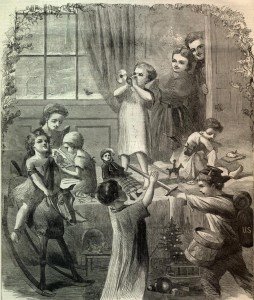We often receive questions from readers in our question box at right. We have had several asking about romantic relationships between Mormons and non-Mormons and what they should do about it. It’s our policy not to become involved in personal problems since we are not an advice column, but we do want to give some general principles touching this topic from an LDS perspective. If you have a question that isn’t addressed here, ask about it in the comment section.
This was a question from a reader named Jim:
I have a general question…
I currently find myself in a rather difficult situation where I (a non member) of the Church of LDS have fallen for a devout believer. This is not a whimsical interest, we have known each other for nearly a year now, it is also a mutual interest, we have discussed our feelings for each and agree that there is a real potential for a relationship.
Now as I explained before she is a devout believer. This immediately creates some obvious obstacles given the fact that I am not a member, the main ones being:
No sex before marriage
No alcohol
No tea/coffee
Restricted activities on Sundays
Now I appreciate that these are only a few of the more general restrictions/guidelines that are in place. But we talked about them. Regarding the no sex before marriage I said why not give the relationship a go, then if in six months or so time we find out we are not that compatible, we could part, but if it is going very well we can continue. I have had sex before but have also been for long periods without it, and explained to her that if we were in a serious relationship that we both thought was heading somewhere I could handle holding off having sex until we were married. As for the other things, I feel confident that we could work around them.
Anyway, just as it looked like we were reaching a situation where we might be about to give things a go, she told me about the temple, and how in order to be sealed/united together in this life and the next you need attend a ceremony there after your civil marriage ceremony in order for this to happen. The catch…only LDS members can enter the temple. Now this seems to have put the brakes on anything potentially happening between us. She’s of the view (as am I) that if we start dating it would become fairly serious and could well lead to marriage, but that as I am not a member we would not be able to be sealed united at her temple. This idea crushes her I think. She is also concerned about the difficulties of raising a family (she wants four children) that has a parent who is not a member of LDS. She obviously wants to give her children the opportunity to join and is worried a non-member partner would make this difficult. I have tried saying that I don’t think this would be such an issue, although not a member of LDS I do believe in god and live a clean lifestyle that would fit in with hers.
I think she is also worried that if she did have a crisis of faith, having a husband who was not a member would be difficult as he would not understand what she was going through and offer support/advice etc. on the subject.
So anyway, I have rambled on long enough, but I do have a couple of questions for you…
1) Is there any way of being sealed/united together in life without going through a temple
2) Are there strictly no exceptions whereby a non member could enter a temple?
3) And thirdly what sort of general advice could you give us concerning the situation we find ourselves in?
Thanks for your help
-Jim
Here is my response:
Jim, thank you for your question. You seem to be very understanding and willing to be patient. I can’t say there are any easy answers, though.
1) Is there any way of being sealed/united together in life without going through a temple?
You can be united together in life without going through the temple, because the church recognizes all legal civil marriages as binding for the duration of life, “as long as you both shall live.” And such a relationship can be very rewarding, but the problem (as you already know) is that it falls short of the goal your paramour has dreamed of since she was young: “For time and for all eternity.”
It’s a powerful motivating force in my life. My family plans on being together forever, and because of that we are interested in creating worthwhile bonds now. It also helps us make good decisions in other areas of life, since we don’t want to diminish the family by letting our standards slip and losing our promise. The promise is obtained through covenant with God and is known as “sealing.”
The ordinance of sealing is only performed in holy temples by men who have been authorized by God. It isn’t available anywhere else.
2) Are there strictly no exceptions whereby a non-member could enter a temple?
It’s a lovely thought to want to have this ceremony for the sake of your girlfriend, but even if you had the sealing, without you believing in it and devoting yourself to it, there is no more promise in it than a civil marriage.
Only those who have prepared themselves in every way may enter the temple, and this includes baptism for remission of sins by an authorized priest, and reception of the Holy Ghost. It also includes an interview with a Mormon bishop to ascertain faithfulness (do you hold to chastity, honesty, temperance, etc?). You must also be willing to enter into certain covenants with the Lord.
In short, even just being a member is not enough to enter the temple. I’m sorry. There are no exceptions allowing anyone unprepared (including non-members) into a temple.
3) And thirdly what sort of general advice could you give us concerning the situation we find ourselves in?
There are three distinct scenarios I can see. It depends on how strongly you and she are willing to pull.
- You marry civilly “until death do you part”
- You receive baptism and prepare yourself for eternal marriage.
- You split up.
#3 (split up) will happen if you decide against converting and she doesn’t give up her desire for eternal family. You might each still find a mate compatible with your ideals, so it’s not all bad, but obviously not what you want to hear.
#1 (civil marriage) is a possibility. A quick visit to the local Justice of the Peace will have you married in the eyes of the law. Plenty of latter-day saints belong to part-member families and many have found a way to “make it work,” but the heart of the issue isn’t the same as any other interfaith marriage. It goes beyond being able to understand your spouse’s religion and deciding on where to take the kids on Sunday. To a Mormon, marriage itself is a fundamental part of the gospel and the crowning glory associated with salvation.
She would see a civil marriage as compromising her long-standing commitment to herself and to God to be sealed for all eternity. It would certainly be difficult for her, as you pointed out, Jim. She may harbor secret hopes that you will eventually come around and join the Church after perhaps years of marriage; also, after your death she may wish to have you sealed to her by proxy — after a baptism for the dead. But even that is contingent on your posthumous desire for it. If you didn’t want it in life, it’s unlikely you’ll change your mind the minute you die. And without your permission, it will not be binding.
I do not endorse a civil interfaith marriage with a Mormon. Not for you or anyone that is in any position to choose it. The Mormon usually leads life pining for a relationship with eternal promise and despairing that it isn’t happening; often they let themselves slip away from God. The non-Mormon feels constant pressure to convert and becomes annoyed that the problem doesn’t go away. I’ve seen too many problem relationships. If this heartache can be prevented, I advocate preventing it.
Such a marriage does not solve the problem you are facing right now, Jim. It only delays solving it. It will present you every morning with the same dilemma: ask her to surrender hope for an eternal family, get yourself to convert, or dissolve the relationship. Avoiding the question is to choose the first option.
#2 (eternal marriage) can happen if you allow yourself to investigate the religion seriously. This is the path that I advise. Invite the missionaries over for a few lessons and read the Book of Mormon with them. After learning a bit more about the Church and understanding why we believe the things we do, you might find your original notions of Mormonism misplaced. People usually find the missionaries’ lessons much more substantive and credible than they anticipate.
You indicated that you have faith in God, which is essential. Believe that He will answer your prayers, and ask Him whether you should join. Believe that He will give you the desire for eternal family that will lead you to unite with her forever.
Jim, I hope I’ve added some clarity to your dilemma. I hope you can see it from her side as well. Meditate on it and pray for guidance. I know the Lord will answer. He answers my prayers frequently.
I’d also invite you to look around at our website. You might find some more answers there. And you are always welcome to email me directly. In fact, I’d very much like to know what you decide.
-Thaddeus

